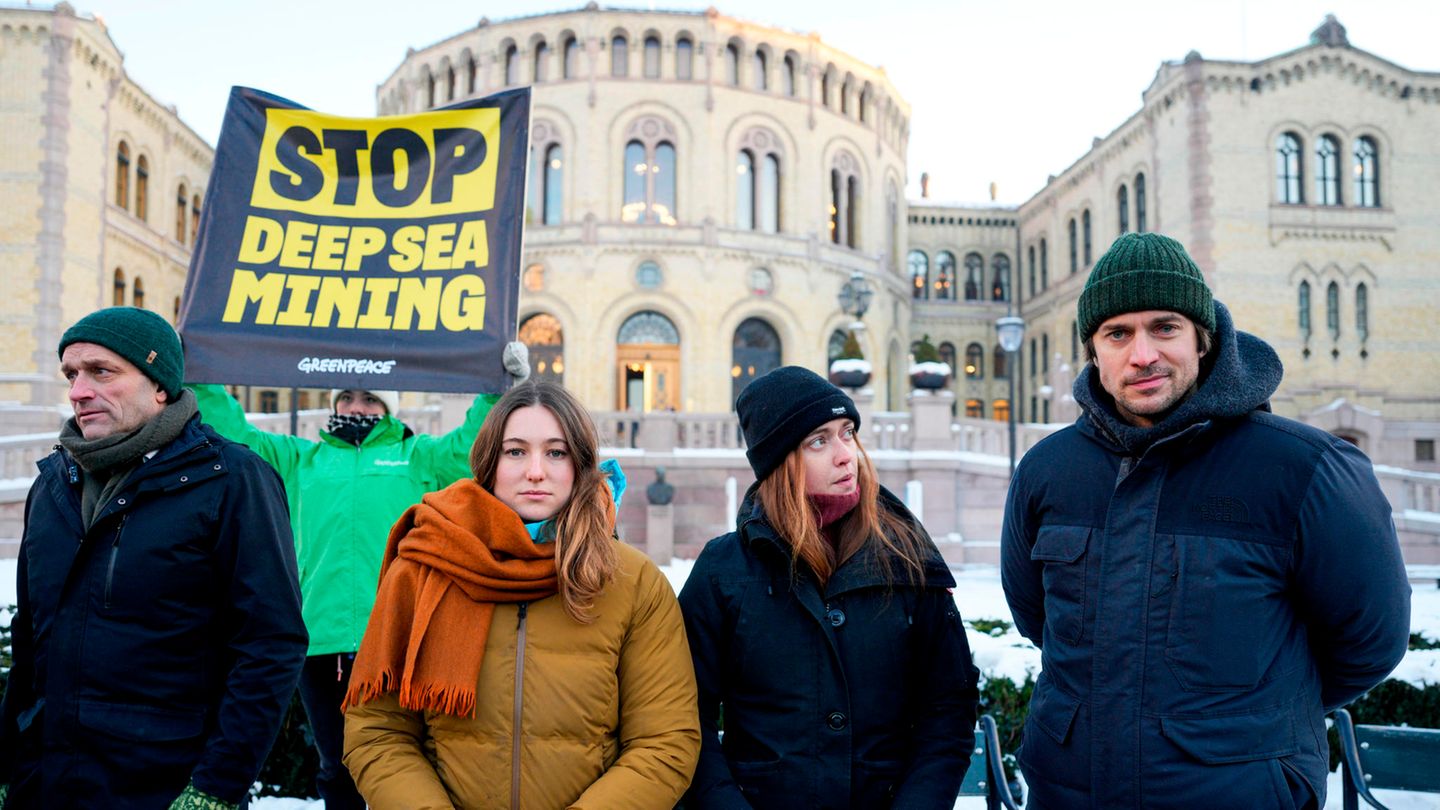Norway is one of the first countries in the world to open up to the controversial commercial mining of deep sea mineral resources. Environmentalists and scientists protest.
Norway’s parliament has given the green light to opening parts of the seabed to deep-sea mining, despite protests from environmentalists. The Storting in Oslo on Tuesday adopted the center-left government’s proposal with 80 votes in favor to gradually release an area of 280,000 square kilometers, mostly in the Arctic. 20 MPs voted against the plan, which scientists warn about because of uncertain environmental impacts.
The Scandinavian kingdom – already the largest oil and gas producer in Western Europe – could be one of the first countries to search the seabed for mineral resources. The government in Oslo is also hoping for new income. However, possible exploitation must be examined again by Parliament. Discussions on how to deal with deep-sea mining ended in the summer without any binding decisions. At the meeting of the Council of the International Seabed Authority (ISA), the 36 member states only agreed on the goal of adopting a set of rules in 2025.
Norway wants to extract mineral resources in the deep sea – protests in front of parliament
In December, the Norwegian government agreed with two opposition parties – the conservative Høyre party and the right-wing populist Progress Party – to partially release the seabed for deep-sea mining. In order to lead the green transformation in the form of fuel cells, solar cells, electric cars and smartphones, these mineral resources are needed, said Social Democratic MP Marianne Sivertsen Naess at the time. They are seen as important for the climate change and also as strategically important so that the EU and its partners can provide themselves with them in times of international tensions.
A small group of people gathered in front of the parliament in Oslo on Tuesday. They protested with banners that read, for example, “Stop deep-sea mining.” A “very new, sensitive and huge area” is being opened that has not been sufficiently researched by scientists, said Tjeldflaat Helle from the environmental organization Greenpeace Norway. “It’s a shame because Norway risks setting a precedent” that other countries could follow, Greenpeace’s Frode Pleym said.
NGOs and scientists warn that deep-sea mining could damage ecosystems and threaten species. Other concerns include the ocean’s ability to absorb CO2 and the possible impact of noise on whales, for example. Some countries – such as France and the United Kingdom – had already called for a moratorium on seabed mining.
Many countries have not yet taken a clear position on deep-sea mining. The Pacific state of Nauru announced some time ago that it wanted to mine manganese nodules on the seabed at a depth of 4,000 to 6,000 meters with the Canadian company The Metals Company (TMC). Such ancient associations contain raw materials such as manganese, cobalt, copper and nickel, which could be used to produce batteries for electric cars.
Source: Stern




